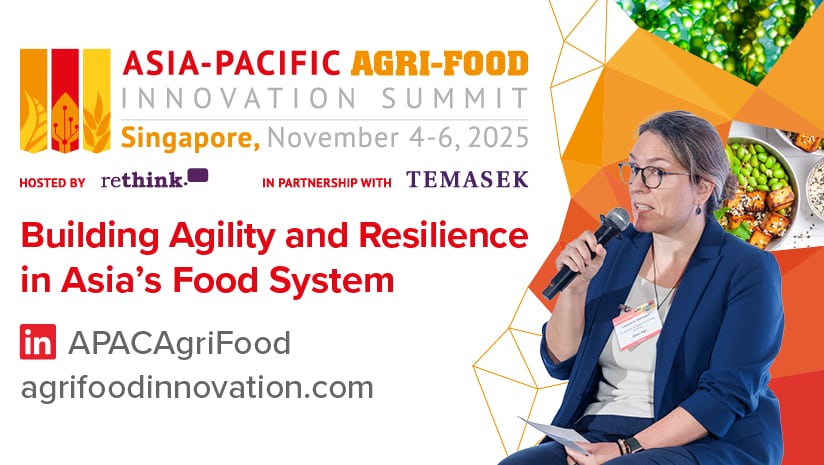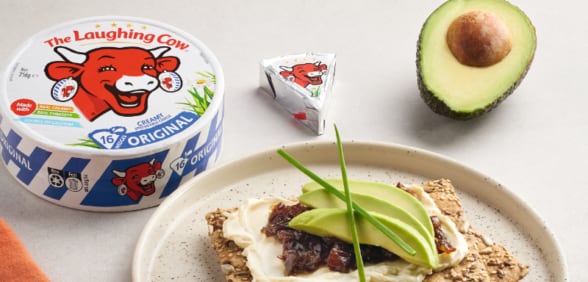Bel Group Precision Fermentation Strategy – Key Summary
- Bel is partnering with start-up Standing Ovation to develop precision-fermented dairy proteins.
- Precision fermentation enables higher protein levels in products like cheese and caseinate.
- Bel expects it will take at least five years for regulatory frameworks to support adoption.
- Consumer acceptance is another challenge, with concerns about market readiness and perception.
- Bel is taking a cautious, long-term approach
Bel has been in the dairy business for some 160 years since its establishment in 1865.
Even with its longstanding experience in the industry, the firm now believes that there is a need for novel techniques to produce the dairy ingredients to be used in their cheeses, dairy snacks and other products.
“We know that there is a need to revamp the world’s protein sources, including dairy protein, as it is now clear that there is no way to sustain supply in the traditional way without going down a dangerous path,” Bel Group SVP and Asia Chief Officer Jean-Christophe Coubat told us.
“As a company, Bel knows we need to develop alternative ways with a lower carbon footprint whether it is cheeses or functional ingredients like caseinate – one of these is precision fermentation.”
Bel has an incubator programme where it funds start-ups relevant to the business, one of which is precision fermentation business Standing Ovation.
“Standing Ovation specialises in precision fermentation and our goal in working with them is to develop the means to increase the protein content we can provide in each product we make,” Coubat said.
“We all know cheese is rich in protein as it is basically dairy with the water removed, but we want to enrich this even further with protein, and precision fermentation is one of the few technologies that can effectively do this.”
Protein for all the ages

Protein in particular is the key nutrient of focus for Bel due to the enormous demand for this across the world.
“Today, protein is one of the most sought-after nutrients that consumers are demanding, as there is a need for this across all the life stages – Babies need it to grow, adults need it for energy and muscles, and the elderly need it to prevent muscle loss,” he said.
“As such, it is clear to see that protein is beneficial for consumers of all ages, and there is great potential here to drive the increase of protein content in products.”
Long road to travel
That said, Coubat acknowledged that the integration of precision fermentation into its regular dairy operations is unlikely to happen any time soon as there are still various significant challenges standing in its way.
“We are not looking at this as a short-term project, and have not set any deadlines for the use of precision fermented ingredients in our products,” he said.
“There are still a lot of considerations right now, such as regulatory constraints where many markets still do not have the clear regulatory environment allowing the use of this as a food ingredient.”
Coubat believes it will be at least another five years before there are enough relevant regulatory advances in this area to move the industry forward.
“It won’t be decades off or anything as there are some, less direct examples of precision fermentation already being used in dairy products such as yoghurt – traditionally this used enzymes from calves, but now the enzymes come from biotechnology,” he said.
The other potential major challenge in this space is consumer acceptance, as this is still a big unknown.
“Companies may be enthusiastic about making the products, but they also need to establish whether people will buy these and whether there will be any pushback or concerns about it,” said Coubat.
“These all need to be addressed early on to minimise risk – just take plant-based as an example, where a few years back the hype was very intense but now has slowed or even reversed due to consumers losing interest. We do not want to have the same thing happen here.”
APAC Agri-Food Innovation Summit 2025

Coubat and many more expert speakers will be sharing their insights on the APAC food industry at the upcoming APAC Agri-Food Innovation Summit 2025 in Singapore from November 4 to November 6, 2025 – register here today to join us and learn more!





